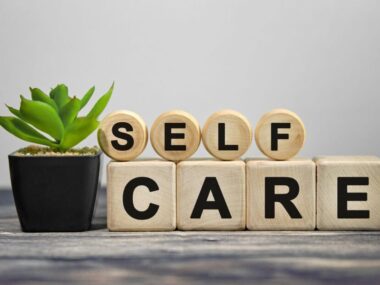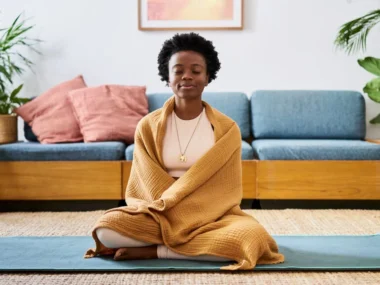Self-care is more crucial than ever in the fast-paced world of today. The constant commotion of daily life can wear us out, make us agitated, and overwhelm us. But there are lots of methods to take care of yourself, and one of the best is by using aromatherapy. Aromatherapy is a holistic treatment method that uses essential oils to support emotional, mental, and physical health.
With good cause, aromatherapy has become more and more popular in recent years. It not only takes a completely natural approach to self-care, but it also has several advantages. Aromatherapy has been demonstrated to have a significant impact on both physical and mental health, including stress reduction, relaxation, pain management, and mood enhancement.
We’ll look more closely at the advantages of aromatherapy for self-care in this post, as well as the science behind it and the several methods you can employ to include it in your daily routine. To ensure you can benefit from aromatherapy safely and effectively, we’ll also go over some crucial safety precautions.
By the time you’ve finished reading this article, you’ll know more about the various ways that aromatherapy can help you take better care of yourself and have the information and resources necessary to start implementing it into your self-care routine.
The Science Behind Aromatherapy
Aromatherapy works by using the power of scent to influence the mind and body. Plants are used to make the essential oils used in aromatherapy, and these natural chemical compounds are thought to have medicinal effects. These essential oils interact with the limbic system in the brain, which regulates emotions, mood, and memory, when breathed or applied topically.
The olfactory system is one of the primary mechanisms by which aromatherapy functions. The olfactory receptors, which are found in the upper section of the nasal cavity, receive aroma molecules from inhaled essential oils through the nose.
The olfactory bulb, which is linked to the limbic system in the brain, receives messages from these receptors. This explains why some smells have the power to evoke feelings and memories.
In addition to the olfactory system, the skin can also absorb essential oils. When essential oils are applied topically, they reach the bloodstream through the skin and are absorbed. From there, they can travel to various body locations and exert a range of therapeutic effects.
The medicinal advantages of essential oils may also be influenced by their chemical makeup. For instance, while some essential oils are well known for their relaxing or uplifting effects, others are known to have chemicals with anti-inflammatory, antiviral, or antibacterial characteristics. Depending on its distinct chemical makeup, each essential oil will have different health benefits.
Overall, research into the science of aromatherapy is still ongoing, but the data points to a potentially potent impact on the body and mind. Understanding how aromatherapy functions can help us better appreciate its advantages and make greater use of it in our self-care practices.
The Benefits of Aromatherapy for Self-Care
Aromatherapy has many benefits for self-care, including lowering stress levels, encouraging relaxation, and enhancing mood and sleep. Some of the ways that aromatherapy might improve your general well-being are as follows:
Stress Reduction and Relaxation
The ability of aromatherapy to reduce tension and encourage relaxation is one of its most well-known benefits. Lavender and chamomile are two examples of essential oils with relaxing properties that can help to calm the body and mind.
In addition, aromatherapy can be used as a healthy substitute for other stress-reduction methods like meditation and deep breathing exercises.
Improved Sleep Quality
Various studies have indicated that using aromatherapy can lead to better sleep. Lavender and bergamot are two examples of essential oils that have sedative qualities that might aid in promoting relaxation and enhancing sleep.
To get a better night’s sleep, try diffusing these essential oils in your bedroom before bed or putting a few drops on your pillow.
Manage Pain
Managing pain with aromatherapy may be beneficial. When applied topically, analgesic essential oils such as peppermint and eucalyptus can help to lessen pain and inflammation. For people with chronic pain problems including fibromyalgia and arthritis, aromatherapy is a useful adjunctive treatment.
Boosts Mood and Promote Emotional Wellness
It has been demonstrated that aromatherapy improves mood and emotional health. Some essential oils, including peppermint and lemon, have uplifting properties that can help to increase energy and mood. Additionally, aromatherapy can be utilized as an all-natural treatment for ailments like anxiety and sadness.
Boosts The Immune System
Additionally, aromatherapy could strengthen the immune system. Some essential oils, like eucalyptus and tea tree, contain antibacterial and antiviral properties that can promote immune function and help avoid infections. You might be able to reduce the frequency and severity of colds, the flu, and other diseases by incorporating aromatherapy into your self-care routine.
Overall, aromatherapy is a flexible and powerful self-care method that has several advantages. There is an essential oil that can help with any of your goals, including lowering stress, enhancing sleep, managing pain, boosting mood, and supporting your immune system. You can raise your quality of life and improve your general well-being by including aromatherapy into your self-care routine.
Aromatherapy Techniques for Self-Care
Aromatherapy can be used for self-care in a variety of ways, including inhaling diffused essential oils and topically. The following are a few of the most popular aromatherapy self-care methods:
Diffusing Essential Oils
Diffusing essential oils is one of the most straightforward methods of using aromatherapy for self-care. An apparatus called a diffuser disperses essential oils into the air so that you can breathe them in and enjoy their healing properties.
There are numerous varieties of diffusers, ranging from nebulizing diffusers to ultrasonic diffusers. For a quick mood boost, just add a few drops of your preferred essential oil to the diffuser and turn it on.
Adding Essential Oils To A Bath Tub
By putting essential oils in a bath, you can use aromatherapy for self-care in another way. Just a few drops of your preferred essential oil can be added to a warm bath, and you can soak for 15 to 20 minutes. This can ease achy muscles, lessen stress, and encourage relaxation.
Topical Application
Additionally, essential oils can be used topically on the skin to provide a range of medicinal advantages. To prevent skin irritation, it’s crucial to mix essential oils with a carrier oil, like coconut or jojoba oil, before applying them to the skin. Topical application has many uses, including pain relief and skin maintenance.
Aromatherapy Massage
A common self-care method known as aromatherapy massage combines the therapeutic benefits of essential oils with the advantages of massage therapy. In order to encourage relaxation and relieve tight muscles, the massage therapist will use a combination of essential oils during an aromatherapy massage.
Inhaling
Using a personal inhaler or inhaling essential oils straight from the bottle are other ways to using aromatherapy for self-care. This can aid in fostering relaxation, lowering stress, and improving focus.
Overall, there are a variety of ways to use aromatherapy for self-care, and each method has advantages all of its own. You can benefit from the therapeutic properties of essential oils and improve your general well-being by including aromatherapy into your self-care routine.
Safety Tips for Using Aromatherapy for Self-Care
Although using essential oils for aromatherapy is typically safe, there are some safety measures you should follow. Here are some precautions to take when using aromatherapy for personal care:
Always Dilute Essential Oils
Because they are so potent, essential oils must always be diluted with a carrier oil before being applied to the skin. Failure to do so may result in burns, skin irritation, and other negative effects. As a general guideline, 3-5 drops of essential oil should be used for every teaspoon of carrier oil.
Avoid Consuming Essential Oils
Never consume essential oils because they can be poisonous and result in significant health issues. It’s necessary to engage with a licensed aromatherapist or healthcare provider if you want to use essential oils internally.
Check for Allergies
It’s crucial to conduct a patch test to determine whether you are allergic to an essential oil before using it. Apply some diluted essential oil sparingly to your skin and wait 24 to 48 hours to check for any negative responses.
Use Caution During Pregnancy and With Children
When using aromatherapy on children or while pregnant, certain essential oils should be avoided. Working with a licensed aromatherapist or healthcare expert is vital if you’re pregnant or using aromatherapy on children to guarantee that you’re using essential oils safely and successfully.
Store Essential Oils Properly
The best spot for essential oil storage is a cold, dark area that’s shielded from heat and sunshine. This can help to keep the oil’s quality and avoid oxidation.
Use High-Quality Essential Oils
Using pure, high-quality essential oils is crucial when utilizing aromatherapy for self-care. Pure essential oils may have therapeutic advantages that are superior to those of manufactured or inexpensive oils.
You can use aromatherapy safely and successfully while taking advantage of all that essential oils have to offer by paying attention to these safety precautions.
Conclusion
Finally, adding aromatherapy to your self-care routine can have a variety of positive effects on your physical, mental, and emotional health. The therapeutic benefits of essential oils can improve your general well-being in a variety of ways, including lowering stress and encouraging relaxation, easing pain, and boosting mood.
You can use essential oils to improve your self-care routine and quality of life by comprehending the science underlying aromatherapy, utilizing various strategies, and adhering to safety precautions. So take some time for yourself, treat yourself to some aromatherapy, and enjoy the advantages of this organic, all-encompassing method of self-care.
Final Thoughts and Recommendations
Using aromatherapy to improve your self-care regimen and foster general wellbeing is safe and effective. However, it’s crucial to keep in mind that essential oils should only be used sparingly and carefully.
Always use high-quality essential oils, abide by safety precautions, and seek advice from a licensed aromatherapist or healthcare specialist if you have any worries or queries about using essential oils.
Furthermore, it’s critical to keep in mind that aromatherapy is but one component of self-care and that it’s crucial to combine a range of self-care activities into your daily routine, including exercise, healthy food, mindfulness, and social support.
You may improve your overall health and well-being and lead a more rewarding and enjoyable life by taking good care of your physical, mental, and emotional needs.




